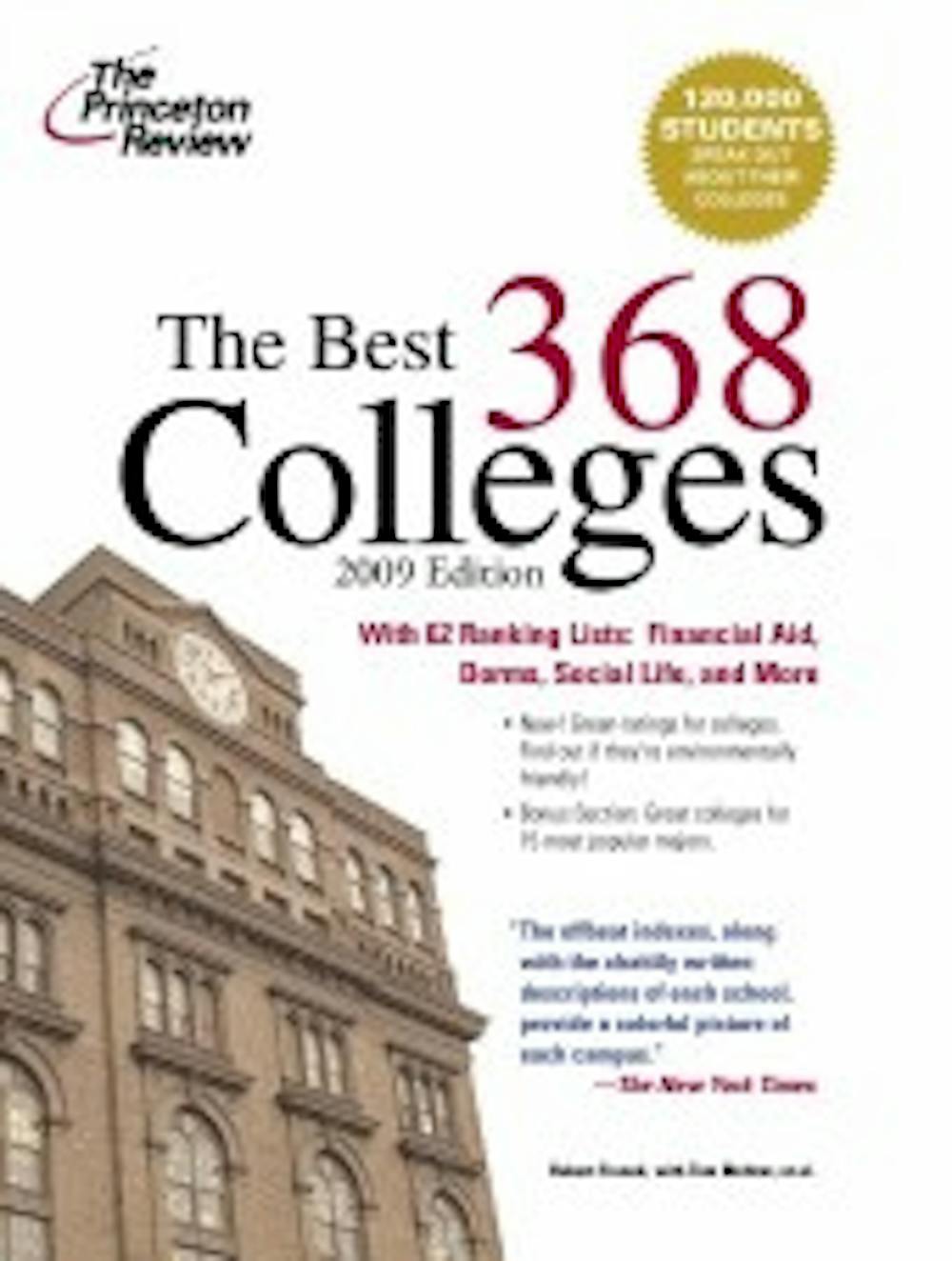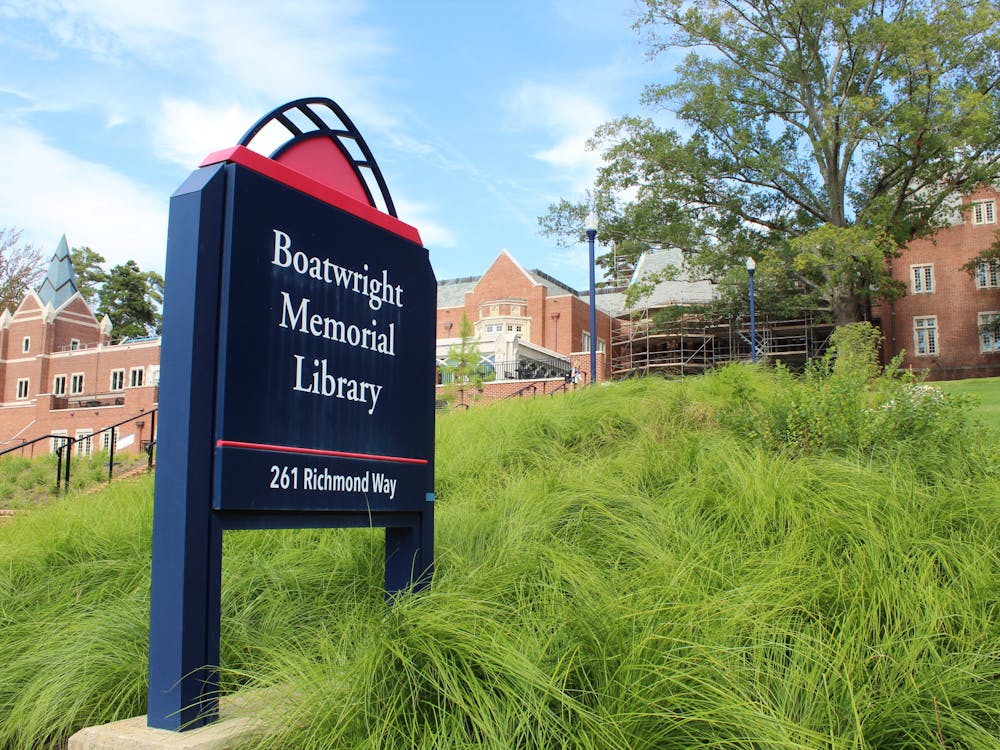The University of Richmond has landed on the Princeton Review's 2009 list of schools with homogeneous populations and little race or class interaction, but made the cut for most beautiful campus and best classroom experience, leading university officials to question the study's survey methodology.
Of the 368 colleges the Review selected to participate in its annual survey, released Tuesday, Richmond ranked eighth for homogeneous population, seventh for little race class interaction, eighth for most beautiful campus, and 20th for best classroom experience.
The survey results come at a time when the university and President Edward Ayers have put renewed focus on diversity after the simulated lynching in spring of a black doll in the Cousins Studio Theater, an incident that some students said showed the school's lack of racial tolerance. Ayers' proposed five-year strategic plan includes dedication toward creating "a more diverse and representative university community."
Twelve percent of students were underrepresented minority in the 2007-08 academic year, and five percent were international students, admissions statistics show.
"The university is pleased to be recognized among the best 368 colleges, but we have some doubts about the methodology student guides use," said Brian Eckert, director of media and public relations for the university.
He said he thought the ranking was "highly subjective," and that it didn't reflect what was real about the university. "Our students who read the guide books tell me that the only way to tell what's real or not real about a campus is to visit it," Eckert said.
The Review's Best 368 Colleges guidebook lists 62 categories, with schools in each category ranked from one to 20. None of the categories list the schools from one to 368.
The results are based on surveys filled out by 120,000 students nationwide, or an average of 325 students per campus. The exact number of Richmond students who participated in the survey was not available, Princeton Review officials said.
Laura Braswell, senior editor of Princeton Review's book, said the 80-question study asked students about their school's academics, administration, campus life, student body and themselves. It also invited students to add comments about their schools, which are used as quotes in the book's profiles, she said.
"I think the rankings are very accurate," Braswell said. The Review selects the 368 colleges based on outstanding academics and the opportunities provided to students, she said, with an effort to incorporate a large cross section of schools.
In 2008, Richmond ranked 16th in the homogeneous population category, but did not appear on any of the other lists. Braswell said schools have a 75 percent consistency of staying on the same ranking list.
Glyn Hughes, director of the Office of Common Ground, said he was not concerned with the results.
Enjoy what you're reading?
Signup for our newsletter
"We don't know whether those opinions are statistically significant," he said. "The opinions are important, but they don't reflect the reality of diversity on our campus. The idea of diversity as a priority is prominent on campus. It ought to be a source of pride that we recognize it and have departments that are specifically charged to make headway on that front."
In terms of social class, Hughes said the university was much more mixed than people thought because of the large percentage of students receiving financial aid and scholarships.
Sabena Moretz, associate director of admissions, said she helped distribute the survey to students through Spiderbytes. The survey was also available through the Review's Web site.
"The best news is that [after being ranked number one in 1999], we're back on the most beautiful campus list and that we're listed under best classroom experience," Moretz said. "Of course we would like to not be on those other lists."
The university partners with at least 20 organizations around the country each year to reach diverse student populations. That includes Partnership for the Future in Richmond, an organization that helps eighth through twelfth grade students with the college selection process.
"There is plenty of evidence that the university cares and is working on this," Moretz said.
To view the Princeton Review's survey, click here.
Support independent student media
You can make a tax-deductible donation by clicking the button below, which takes you to our secure PayPal account. The page is set up to receive contributions in whatever amount you designate. We look forward to using the money we raise to further our mission of providing honest and accurate information to students, faculty, staff, alumni and others in the general public.
Donate Now



